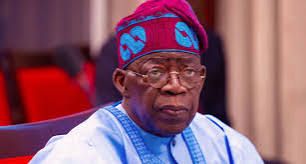The Federal Government has clarified President Bola Tinubu’s recent request to the National Assembly for approval of a new $21.5 billion external loan, which is part of the proposed 2025–2026 borrowing plan.
It affirmed that, her debt strategy is not only guided by debt size obligations, but by the utility, sustainability, and economic returns of the borrowing. This was as it explained that actual borrowing for each year is contained in the annual budget.
In a statement issued by the Director of information in the ministry of finance Mr Mohammed Manga , government explained:
“In 2025, the external borrowing component is US $1.23 billion, and it has not yet been drawn. This is planned for H2 2025. Also, the plan is for both federal and several state governments across numerous geopolitical zones including
Abia, Bauchi, Borno, Gombe, Kaduna, Lagos, Niger, Oyo, Sokoto, and Yobe States.”
President Bola Tinubu on Tuesday transmitted three letters to the National Assembly requesting legislative approval for a new external borrowing plan amounting to over $21.5 billion, and a domestic bond issuance of ₦757.9 billion to settle outstanding national pension liabilities.
Tinubu made these requests in three separate letters transmitted to the National Assembly, which were read on the floor of the House of Representatives by the Speaker, Tajudeen Abbas.
In the first correspondence, President Tinubu sought the National Assembly’s approval for the establishment of a foreign currency-denominated issuance programme in the domestic debt market.
The proposed capital raise of up to $2bn would be implemented by the Debt Management Office in line with the Presidential Executive Order on Foreign Currency Denominated Financial Instruments, Local Issues Programme, 2023 .
The fresh loan bid which, if approved by the parliament will scale up the country’s total debt stock to $115.73 billion is attracting criticism.
The government’s statement issued by the ministry of finance is ostensibly, to clear public misgivings and lay bare information on the borrowing.
The statement said :” Importantly, it should be noted that the borrowing rolling plan does not equate to an automatic increase in the nation’s debt burden. The nature of the rolling plan means that borrowings are split over the period of the projects. For example, a large proportion of projects in the 2024. – 2026 rolling plan have multi-year draw downs of between 5 – 7 years which are
project-tied loans. These projects cut across critical sectors of the economy, including power grids and transmission lines, irrigation for improving food security, fibre optics network across the country, fighter jets for security, and rail and road infrastructure.”
“The majority of the proposed borrowing will be sourced from Nigeria’s development partners,
including the World Bank, African Development Bank, French Development Agency,
European Investment Bank, JICA, China EximBank, and the Islamic Development Bank. These institutions offer concessional financing with favourable terms and long repayment periods, thereby supporting Nigeria’s development objectives sustainably.”
The government explained that debt service to revenue ratio has started decreasing from its peak of over 90% in 2023, noting that it had ended the distortionary and inflationary ways and means.
In addition, it noted significant revenue expectations from the Nigerian National Petroleum Corporation (NNPC), and technology-enabled monitoring and collection of surpluses from Government Owned Enterprises and revenue-generating ministries,
departments, and agencies, including legacy outstanding dues.
“Having achieved a fair degree of macroeconomic stabilization, the overarching goal of the Federal Government is to pivot the economy onto a path of rapid, sustained, and inclusive economic growth. Achieving this vision requires substantial investment in critical sectors such as transportation, energy, infrastructure, and agriculture. These investments will lay the groundwork for long-term economic diversification and encourage private sector participation.
“Our debt strategy is therefore guided not solely by the size of our obligations, but by the utility, sustainability, and economic returns of the borrowing. Ensuring that all borrowed funds are efficiently utilized and directed toward growth-enhancing projects remains a top priority.”
The government assured Nigerians of commitment to keeping borrowing within manageable and sustainable limits in accordance with the DMO Debt Sustainability Framework.
“The ongoing tax reform agenda, and other revenue initiatives, will further improve revenue generation and prudent financial management. We reaffirm our dedication to fiscal discipline, transparency, and accountability”, it said.
















